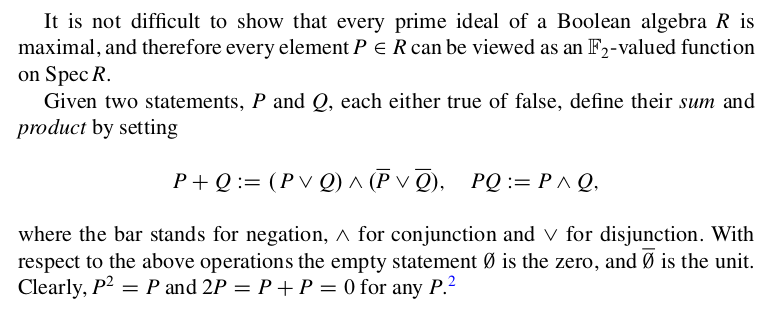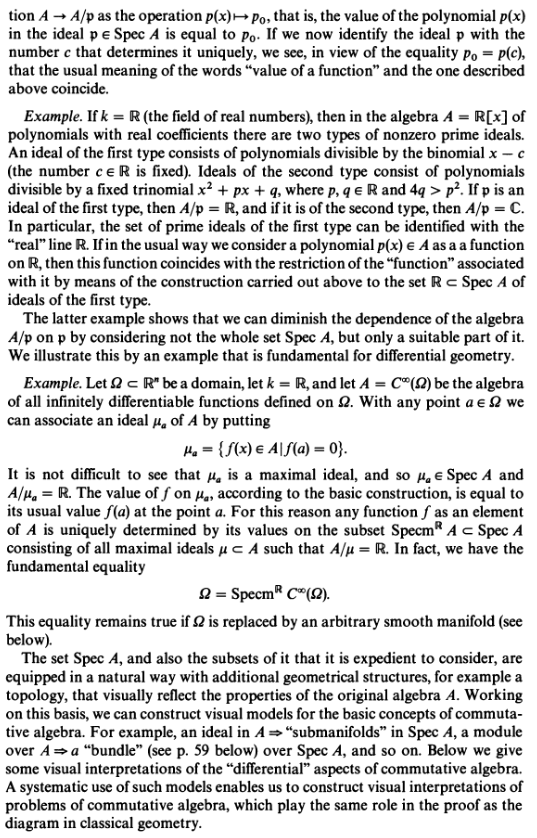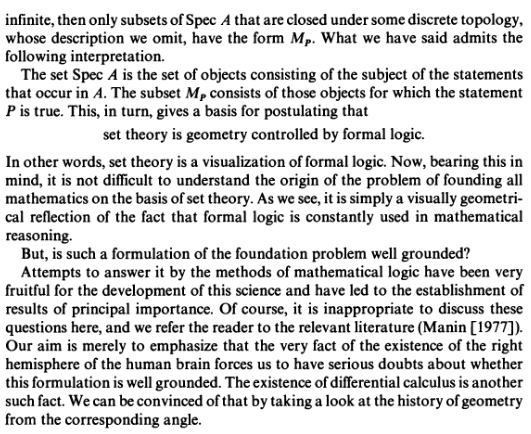I am writing a thesis on algebraic logic, I wonder if there is any recent research on an idea mentioned in Yuri Manin's book on algebraic geometry and in another Russian textbook on differential geometry (in which they briefly mentioned this idea).
Basically the idea is to associate Boolean logic with Boolean rings (which appears in many places). But further research seems needed to extend this to first-order logics.
This is from Yuri Manin's 2018 book, Introduction to the Theory of Schemes:
but I cannot find where he developed the idea further.
The following is from another Russian text, Basic Ideas and Concepts of Differential Geometry, by D.V. Alekseevskij, A.M. Vinogradov, V.V. Lychagin.
The Russian title is: Itogi nauki i tekhniki, Sovremennye problemy matematiki, FundamentaFnye napravleniya, Vol. 28, Geometriya 1, Publisher VINITI, Moscow 1988.
From Chapter 1:
I am not aware of any more research further along this direction. How can I do a more thorough search of the literature? Or if anyone can point to some relevant research would be greatly appreciated.
I am already aware of the recent literature in (abstract) algebraic logic and categorical logic, but not this particular idea which is inspired from algebraic geometry.






